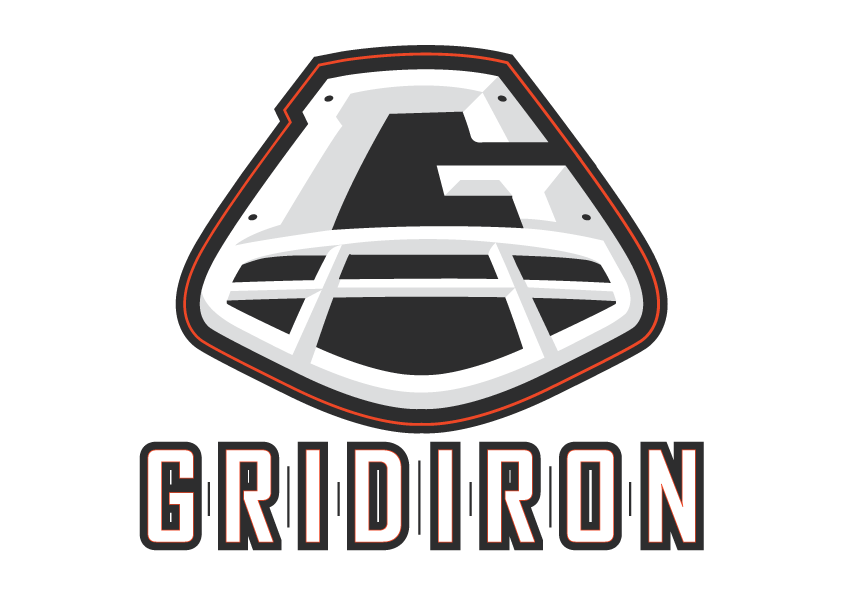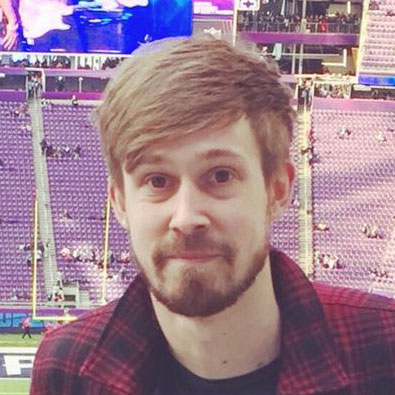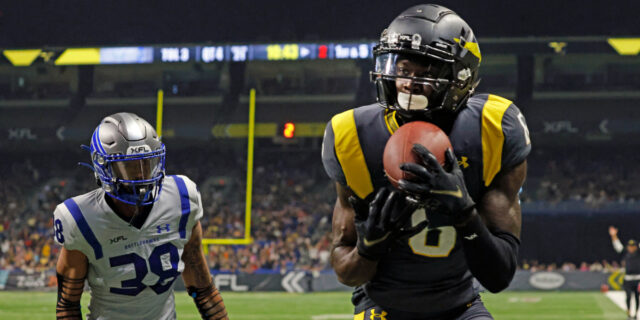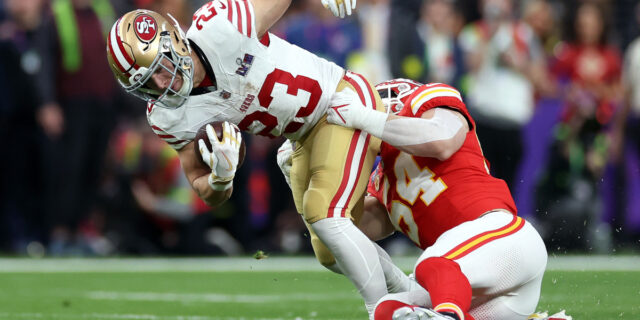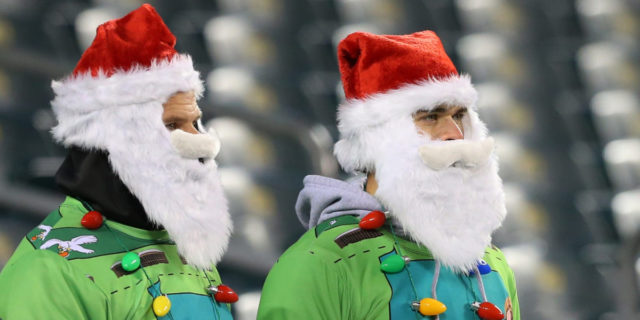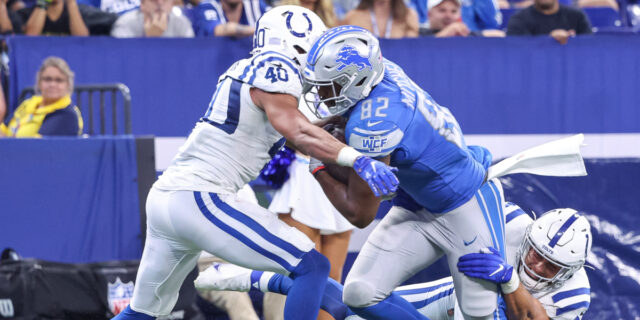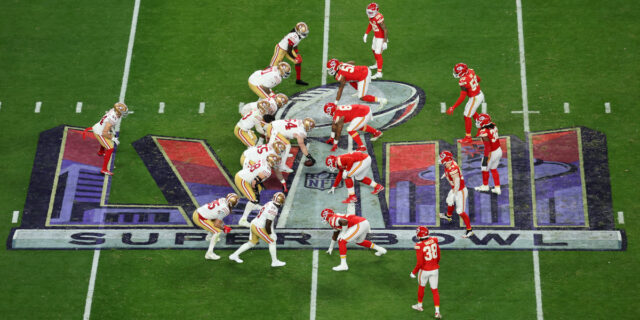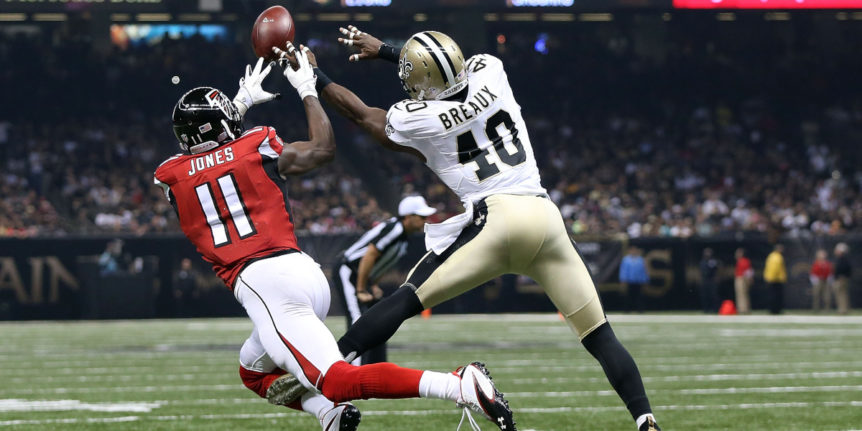
C’mon Breaux!
This article originally appeared in Issue XVIII of Gridiron magazine, back in 2015 – for individual editions or subscriptions, click HERE
He describes the words as “like a trainwreck going through my head”. His dad was in tears, mum too. On October 27, 2006, Delvin Breaux was informed he had just cheated death. “The doctor was like, ‘You’re lucky to be alive; you should be dead right now’.” Nine years on, and in the same city where his life was almost ended on the gridiron, Breaux is turning heads in the NFL as one of the game’s best emerging cornerbacks.
Two days after his 17th birthday, high-school standout Delvin Breaux was on kick-off duty for McDonogh 35 against Jesuit in New Orleans, Louisiana. One of the state’s finest young prospects hared down the field in pursuit of the returner. He made the tackle, of course, yet there was a problem. The hit he delivered on the 16-yard line was into his opponent’s knee. “I went down there and made a tackle and I didn’t think nothing of it,” Breaux recalls to Gridiron. “I was out for like two, three seconds and then a bright white light showed up in front of my face.”
The smelling salts brought him around and, despite being unable to move at first, Breaux assured his coach, and the team-mates telling their defensive linchpin, ‘We need you’ that he was fine. “I ended up getting up, jogged off the field, and I took my helmet off on my own power, not knowing my neck was broken; I was ready to actually get back in on the next play.”
Sitting on the sidelines it quickly became apparent that Breaux was not going in on the next play; in fact it looked like he might never gone back in. Ever. “I felt an excruciating pain shoot down my neck. I went and sat down and told my dad to come over. They give me some ibuprofen and I couldn’t swallow the pills because the disk slipped in my oesophagus. I was like ‘Man, my neck hurts. Call the ambulance over; come take me to the hospital’.” Soon after, Breaux would be told he was fortunate to still be breathing at all.
“They throw it to a 6ft 4ins, 200-something pound running back and I’m sitting there… I’ve got to tackle the guy! He’s coming my way right now! And I just went in there, lowered my shoulder and made the tackle.”
New Orleans was a hot bed of talented high-school football players in the middle years of the previous decade. Odell Beckham Jr, Tyrann Mathieu, Mike Wallace, Keenan Lewis, Joe McKnight and Alfred Blue would all blossom along the banks of the Mississippi River in the space of a few years, but Breaux might have been the most impressive of the lot. “He was one of the better high-school players,” Jeff Reinebold, who was recruiting in the area at the time, recalls. “Delvin was probably as highly thought of as any of them until he broke his neck.”
A few months before that incident, Breaux had already committed to play for his home-state LSU Tigers and, despite breaking three vertebrae in his neck, they agreed to honour his scholarship. If he could get doctors to sign him off, he would spend the next few seasons in a defensive backfield that included Patrick Peterson, Morris Claiborne and Eric Reid – all of whom would be taken in the first 18 picks of future years’ NFL drafts. But medical clearance never came for Breaux. “I’d play flag football and show my skills and everybody would be like, ‘You need to be in the NFL with these skills. You need to be doing this and that’. ‘Only if doctors clear me, that’s all I can say’. I didn’t have the opportunity of doctors clearing me. I always used to try to continue to keep working and eventually something was going to happen.”
Three years at LSU came and went without him ever once padding up. While Peterson, Claiborne and Reid were headed for multi-million dollar contracts in the NFL, Breaux began to doubt he would ever play again. Yet those worries were quashed by a burning desire to return to the sport he loved. Coaches and family, including the wife-to-be he met at college, supported him; Breaux just needed an opportunity never afforded him at LSU. “If you feel you can go back out there and do it and be 100 per cent then go,” his family told him.
His avenue was with the Louisiana Bayou Vipers, a semi-pro outfit of the Gridiron Development Football League who play in a division alongside the likes of the Crescent City Kings and Panhandle Crusaders. His skills had not waned – those flag-football sessions that proved that – but how would Breaux and his surgically-repaired neck fare when a tackle had to be made? He would soon find out. “They throw it to a 6ft 4ins, 200-something pound running back and I’m sitting there… I’ve got to tackle the guy! He’s coming my way right now! And I just went in there, lowered my shoulder and made the tackle. I popped my head up and was like, ‘Man, I’m not dead, I’m alive!’ That moment right there, it hit me. I started playing right – I was ready to go.”
The Bayou Vipers were not blessed with Breaux’s presence for long. He spent one year there before embarking on a short stint with Arena League outfit New Orleans VooDoo and then the CFL and Reinebold’s Hamilton Tiger-Cats came calling.
“When I first saw him, I said, ‘What the heck are you doing here?” Reinebold recalls. “He just knocked it dead at the workout. It was just a question of whether the doctor would pass his neck. He came in and started from the very first game as a rookie. He’s a really unique kid, he’s so big and strong but has tremendous catch-up speed. He can turn his hips, is a good tackler and is a great team special-teams player. He’s a phenomenal kid too.”
“If you took that script to Hollywood they’d reject it, say it was too farfetched.”
Having missed out on developing at college level, Breaux received his on-field pre-NFL education with one of the CFL’s best franchises instead. He would draw one-on-one assignments against wide receiver Chris Matthews, the Winnipeg Blue Bomber who was en route to a Super Bowl MVP award with Seattle in February before being upstaged by Tom Brady, and learn how to channel his insatiable appetite for the game he adored in the correct manner. He only had one interception in the CFL because quarterbacks rarely threw his way, the ultimate badge of honour for a shutdown corner, and he was voted an all-star in his second and final season with the Ti-Cats, who reached the Grey Cup in each of Breaux’s years on their roster.
“He was the first kid in the meeting room,” Reinebold admits. “He wanted to learn, paid attention, wrote everything down. He was exactly what you hoped most of them would be. He’s a great example to young players about perseverance, belief in yourself, toughness and what can happen when you combine all of those factors together.”
The NFL beckoned. Everyone in Hamilton knew it. The only question was who would win the Delvin Breaux sweepstakes? One NFL franchise who hoped to run the rule over Breaux were implored by Reinebold to sign him, and they weren’t the only ones coveting the defensive back. He had 28 workouts scheduled, attended over a dozen, but once his hometown team entered the race, a clear winner emerged. “Here’s a kid that at one point is laying on a high-school football field in New Orleans and people are wondering if he’s going to live,” Reinebold says. “Lo and behold, nine years later he’s back starting in the Superdome for the Saints. If you took that script to Hollywood they’d reject it, say it was too far-fetched.”
Breaux signed for the Saints in January 2015 and not only made their 53-man roster, but quickly nailed down a spot as a shutdown corner in defensive coordinator Rob Ryan’s secondary. Reinebold described him as “really, really green” when he arrived in Hamilton and there were growing pains with NOLA too. He was flagged for penalties four times in his NFL debut against the Arizona Cardinals, with habits he tried to kick by wearing boxing mitts in practice to combat possible holding calls, and a GIF of him losing a deep ball to Tampa’s Louis Murphy in comedy fashion the next week was picked up across the internet. However, the good was soon outweighing the bad, and a stunning performance against the league’s best receiver, Julio Jones, in the primetime of Week 6 helped everybody sit up and take notice.
“Delvin Breaux might be the greatest bargain-basement free-agent signing that New Orleans has had ever,” Reinebold declared. The locals agreed, with a New Orleans newspaper hailing their hometown hero’s signing as “the best deal since the Louisiana Purchase” – an 1803 land agreement with the French which saw America double in size for the equivalent of a bag of peanuts. “Sometimes I still don’t believe that this is actually happening to me,” the man considered more important than that significant moment in American history admits.
“That jersey brings back so many memories of what I’ve been through to where I am now. I just look at it and think how far I’ve come.”
Nullifying Jones was no fluke. Breaux spent “hours and hours” studying the stud wide-out alone, going back to tape from his rookie season, and he can recall his stat line from that night off the top of his head. Six catches, 93 yards. Only two were made against Breaux, for 20 yards, from the five targets he got when matched up with the cornerback. It may have upset one of his family members, though. Ten months earlier Breaux uploaded a photo on his Twitter account of him wearing the jersey of his NFL hero Darrelle Revis next to his brother-in-law, who just happened to be in a #11 Falcons top. Breaux laughs when asked if forgiveness has been forthcoming after that Thursday night lockdown. “He’s a big Julio Jones fan, but he had to get rid of that jersey! He had to put that back in the closest once we played against them.” It makes for a nice tale, but in the book of Breaux’s life, it’s only worth a mere footnote.
There is no escaping what happened to Breaux that evening in October, 2006, and he doesn’t want to forget. The scar which runs along the back of his neck is a constant physical reminder, but there is another memento that has followed him on the road to the NFL. Through the semi-pro ranks, to the Arena League, to Canada, and finally back to the Big Easy, Breaux has held on to the McDonogh 35 jersey he wore the evening all his hopes and dreams nearly disappeared. “That’s my jersey; I am not letting that go at all. That jersey brings back so many memories of what I’ve been through to where I am now. I just look at it and think how far I’ve come. That jersey is always going to be with me and I’m going to treasure that.”
The mustard-yellow shirt epitomises where he has come from; the messages on his whiteboard symbolise what is to follow. Breaux scrawls resolutions on there – continue to love my wife, continue to be better than I was – and after ticking off so many professional goals over the past nine years, there is one clear target on the whiteboard now he’s in the NFL. “Win the Super Bowl. No question.” Seeing the boy who should have been dead lift the Lombardi Trophy? Now that would be a story to rival even the greatest Super Bowl fairytale.
This article originally appeared in Issue XVIII of Gridiron magazine – for individual editions or subscriptions, click HERE
